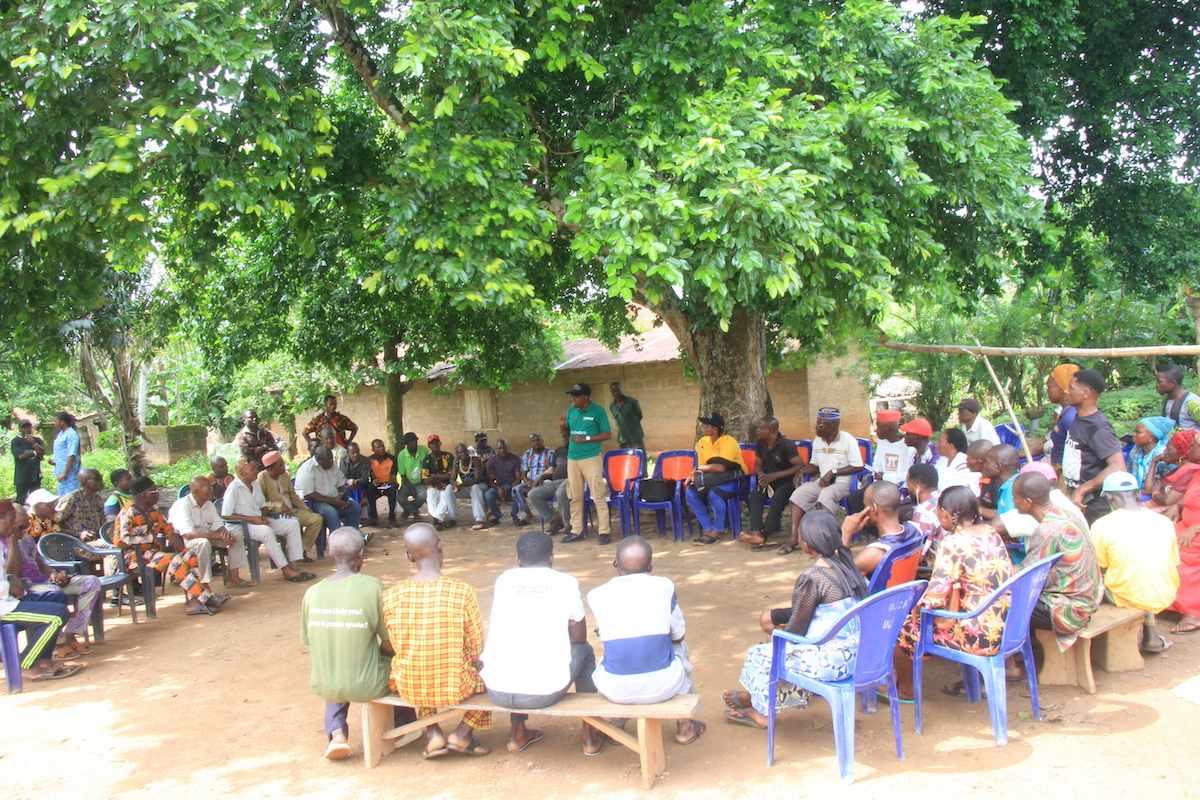Community members participate in a multi-stakeholder platform meeting to discus oil palm agriculture.
Oil palm agriculture plays a critical role in the Nigerian economy by sustaining livelihoods across rural communities and supporting local industry. In fact, until the nineteen-sixties, Nigeria was the global leader in palm oil production accounting for 43 percent of production. Though it now ranks 5th as of 2021, the government continues to encourage oil palm agriculture.
However, current efforts to revitalize the sector risk damaging vital ecosystems and increasing carbon emissions due to unsustainable practices. As concerns over deforestation and environmental degradation mount, Solidaridad is advocating for sustainable production practices in palm producer communities across Nigeria. Efforts include promotion of deforestation-free production, sustainable land use, community-led conservation and climate-smart practices at the mill level.
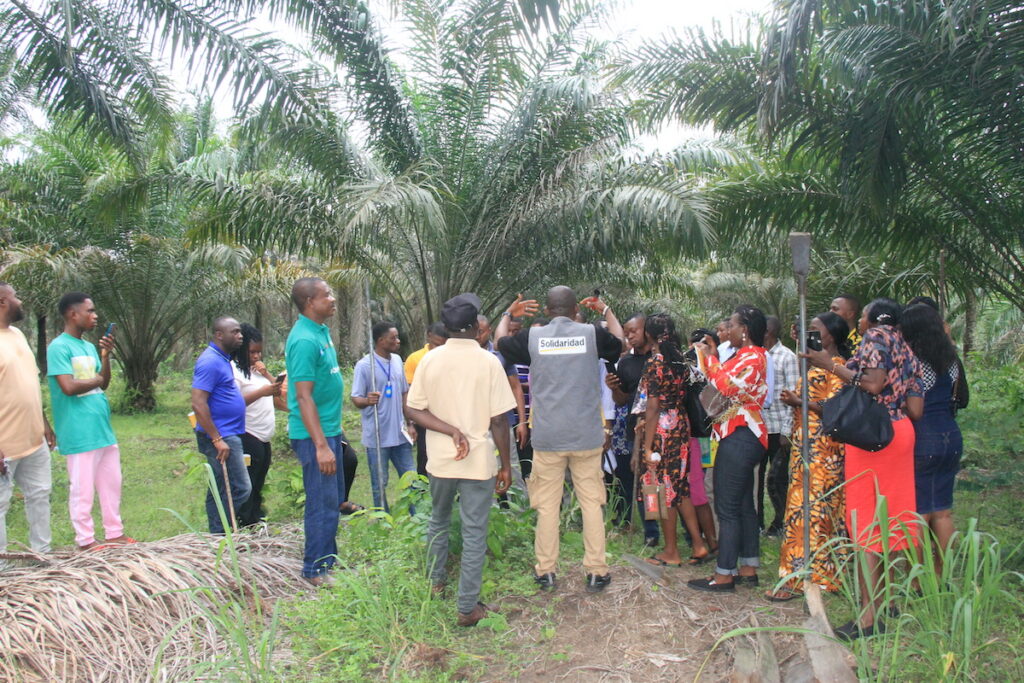
Central to Solidaridad’s advocacy efforts are multi-stakeholder platforms (MSPs) established under the National Initiatives for Sustainable and Climate Smart Oil Palm Smallholders (NISCOPS) programme. The platforms function as advocacy groups and forums for community discussion. The MSPs bring together smallholder farmers, traditional rulers, community leaders, civil society organizations, youth and women’s groups and local government officials to identify challenges and advocate for climate-smart agriculture and responsible land use.
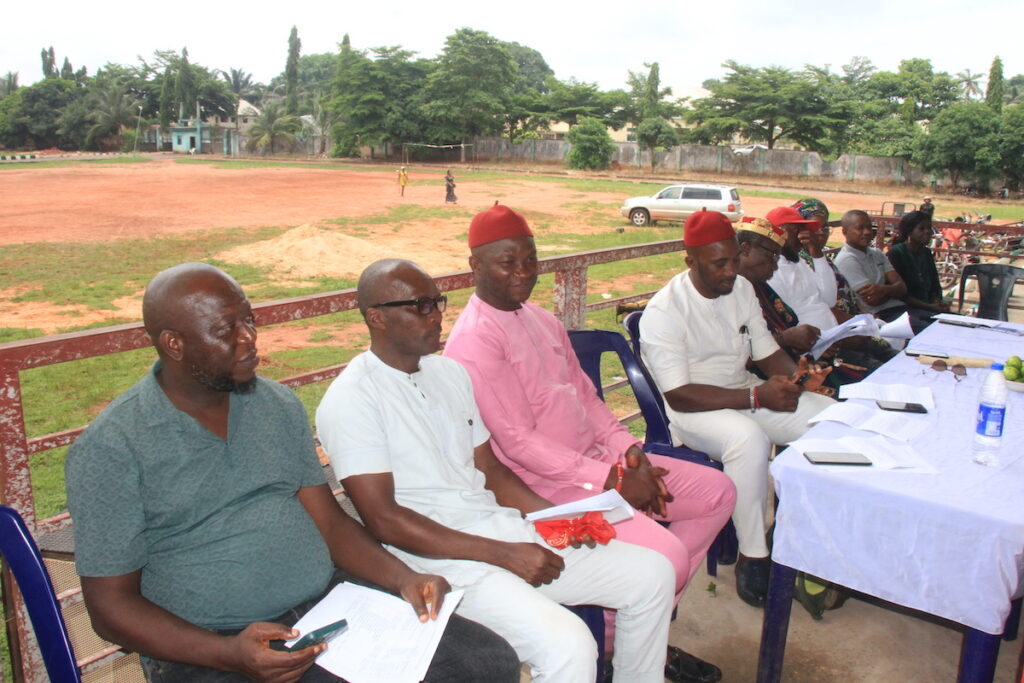
MSP members have generated growing momentum for sustainable practices that support environmental health and economic resilience in the Nigerian states of Akwa Ibom, Cross River, Enugu, and Kogi. In states where NISCOPS has been implemented, the platforms have worked through rallies, workshops, and awareness campaigns to educate community members on the value of deforestation-free production and responsible farming techniques.
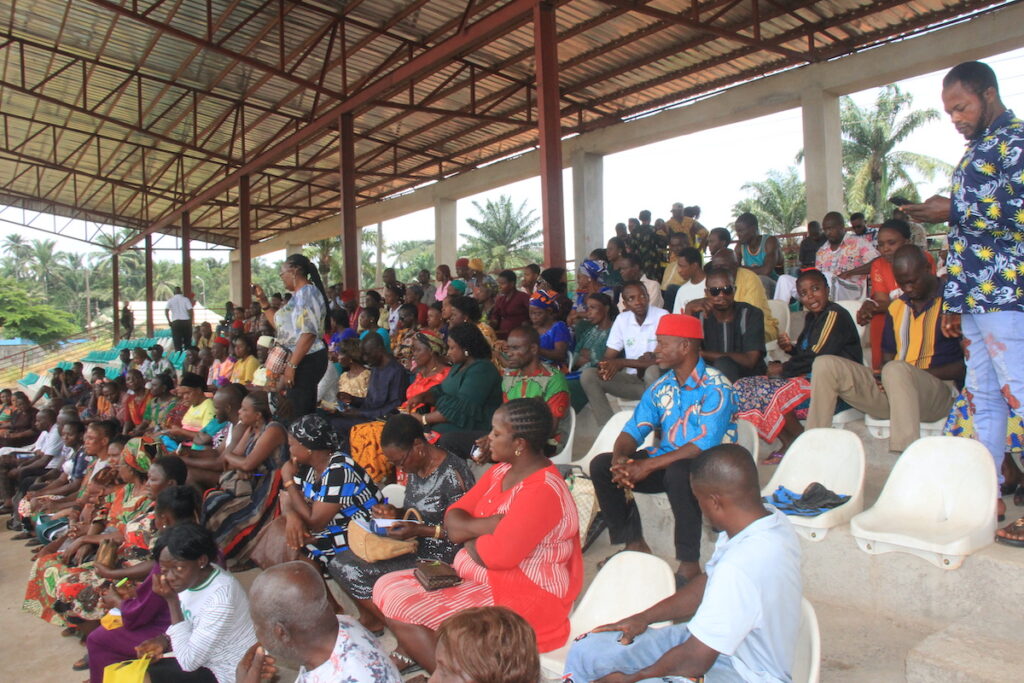
Kene Onukwube, the programme manager for Solidaridad in Nigeria, notes that multi-stakeholder platforms are essential in promoting sustainable oil palm production.
“By working with trusted community representatives, we’re able to foster greater acceptance and adoption of responsible practices. This approach empowers smallholder farmers and strengthens local economies.”
The impact of the platforms, Onukwube said, was evident in their outreach efforts. “Members of the platforms have organized rallies in the 17 local government areas. These events bring together farmers, traditional leaders, youth and women’s groups to raise awareness about the need for climate-friendly agriculture and the long-term benefits of sustainable practices.”
These practices, if adopted, would increase yields, improve livelihoods for smallholder farmers, strengthen local economies, and align Nigeria’s palm oil industry with global standards for responsible sourcing and fair business practices.
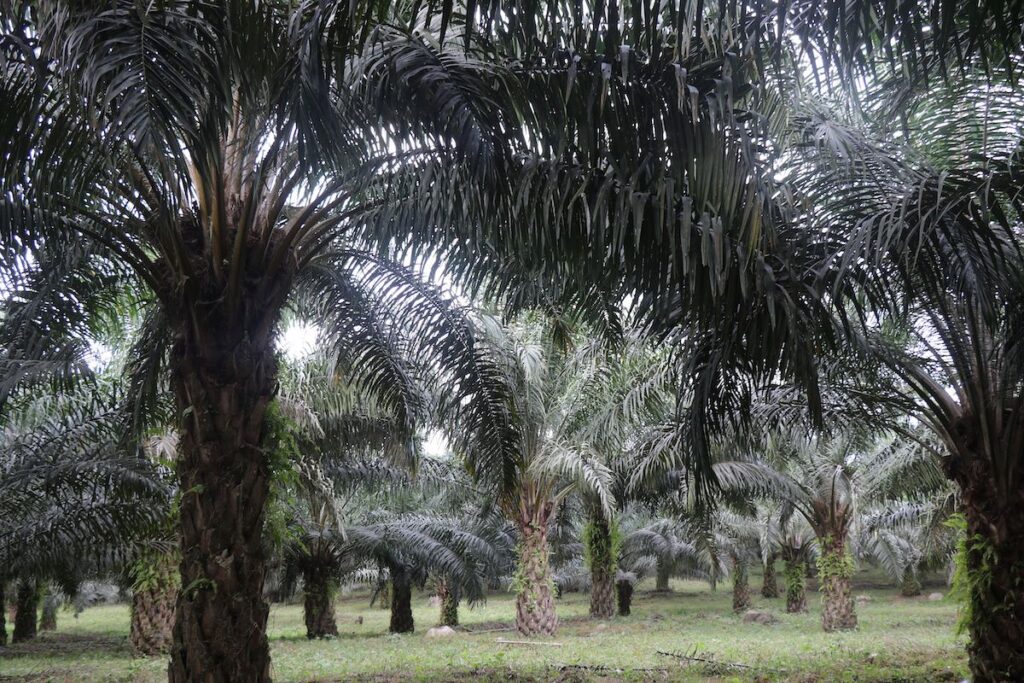
Through NISCOPS, Solidaridad aims to transform palm oil production into a resilient, environmentally responsible sector that enhances smallholder farmers’ income, while safeguarding Nigeria’s natural resources for future generations.
About NISCOPS
Funded by the Netherlands Ministry of Foreign and the Foreign, Commonwealth & Development Office of the United Kingdom the National Initiatives for Sustainable and Climate Smart Oil Palm Smallholders (NISCOPS) is committed to driving Nigeria’s oil palm sector toward sustainability. The programme is jointly implemented by Solidaridad and IDH.

